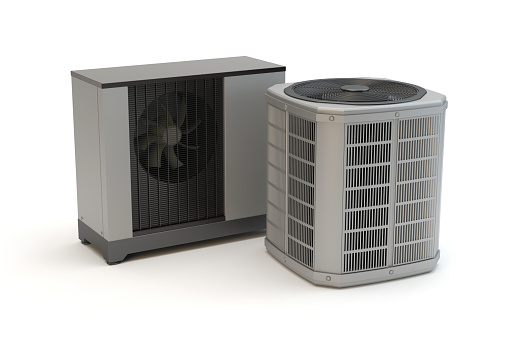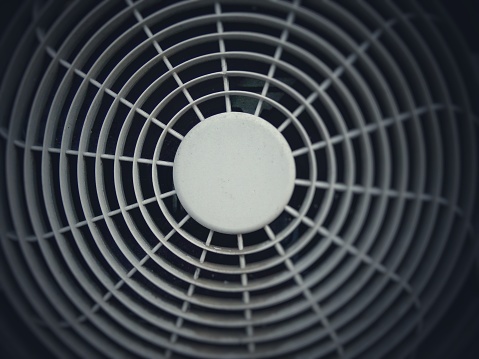If it’s time to replace the cooling system in your home, you may be trying to decide between an air conditioner and a heat pump. While both can provide cooling for your home, they have different benefits, so it’s important to choose a system that fits your needs.

In warm weather, a heat pump and an AC unit work essentially the same; they both cool indoor air. During the winter when you need to heat your home, an AC unit can’t help; this is why homes with AC typically also have a furnace or electric heat. A heat pump can provide heat as well as cooling. Here’s a deeper look at the advantages and limitations of each type of unit.
Types of Heat Pumps and AC systems.
Heat pumps are devices that transfer the heat inside a home and the air outside. In warmer climates, heat pumps extract the heat from indoor air and transfer it outside; during cold temperatures, it reverses the process.
There are two main types of heat pumps: air sourced and geothermal. An air-source heat pump uses heat from the outside air, while geothermal ones extract the heat from the ground. There are two different designs for heat pumps/AC systems as well: split type and packaged units.
A split type heat pump has a separate indoor and outdoor unit.
Packaged heat pumps contain all the system’s components housed in a single unit. Heat pumps can be connected to an air handler with heat strips or a gas or propane furnace (known as a dual fuel system) that supplements heating during extremely cold temperatures. Heat strips are only utilized during the defrost cycle of the heat pump or when temperatures hit below 30 degrees when the heat pump has difficulty extracting heat from the air.
A mini-split system can be cooling only or heat pump… The indoor unit is mounted on the wall or as an air handler connected to a small duct system.
A window unit can be either cooling only or a heat pump and combines all components into a single box-like unit that can be fit onto a window. These are typically best for a single room.
Portable air conditioning units are similar to window units, but they can be moved easily throughout the home. Most are cooling only.
Heat Pumps Benefits
- Generally more cost-effective and energy-efficient than other types of heating
- Safer than gas furnaces and relatively environmentally friendly
- Provides both cooling and heating, which eliminates the need for separate systems
- Reliable with a long lifespan averaging 10 – 15 years
- Purchasing an energy-efficient model may qualify for tax rebates
- Requires less maintenance than traditional heating and cooling systems like stoves or fireplaces.
Costs
The cost of a heat pump with installation can vary greatly, as it’s dependent on factors like unit type, size, energy efficiency ratings, installation location, and the amount of ductwork needed. Averagely, it can cost anywhere from $4,100 to up to $20,000 for geothermal unit installation.
Air Conditioners
Like heat pumps, air conditioners transfer heat from indoors to the outside, but they’re only able to provide cooling. Air conditioners consist of both outdoor and indoor units. The outdoor unit consists of a condenser, compressor, and fan. This connects to an indoor unit with a blower and evaporator coil. Air conditioners are connected to either an air handler with heat strips or a gas or propane furnace. Refrigerant circulates through the condenser and evaporator, which allows the air conditioner to absorb heat from the indoor air. The cold air that results from this process is then pumped through the ducts using the fan.
Air Conditioner Benefits

- Offers an optimal indoor climate even during the hottest temperatures
- Can encourage better sleep due to steady, comfortable room temperatures
- Can help improve air quality by reducing allergens and pollutants
- Can reduce dehydration
- Long lifespan averaging 10 – 15 years
AC Costs
Like heat pumps, air conditioner costs can vary significantly depending on the type, energy efficiency rating, installation location, and unit size. The unit itself can be anywhere from $150 to $10,000. Another factor that can affect the installation costs is the amount of ductwork needed to set up the system. While purchasing a more energy-efficient model can be more expensive initially, it can save you money on energy costs over time.Since both air conditioners and heat pumps last for over a decade, it’s important to consider which system is best for your cooling needs. If you’re unsure which system to choose, we’re always happy to offer recommendations and find the best solution for your needs. We also provide complete installation, repairs, and maintenance for your HVAC systems. Give us a call today at 864-639-2424 to learn more or schedule an appointment.



